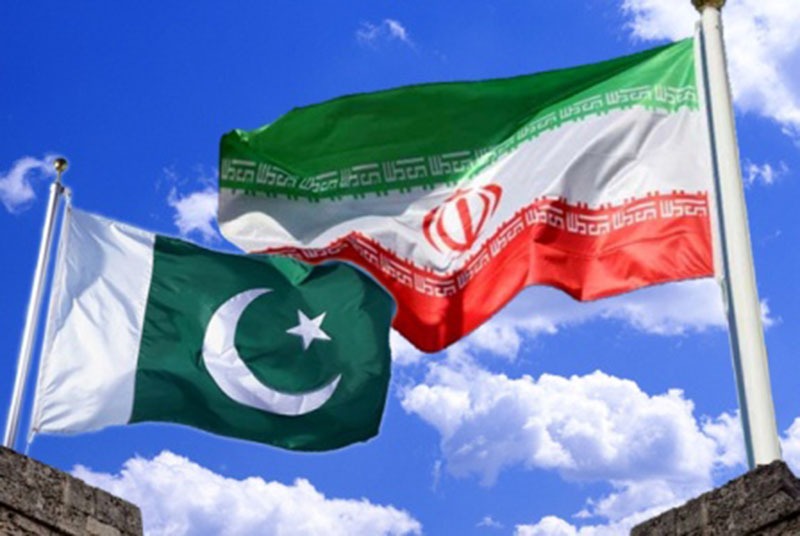Officials of the two countries have always talked about capacities, synergy of interests and such statements in the area of politics, culture and commerce; such as the promise of Imran Khan for upgrading the value of bilateral trade to five billion dollars; however, in action, and according to the available documents, this “inclination” alongside the existence of “necessity” has never been converted to an instigator for reviewing and reconstructing the relations. In order to see the level of relations between the two countries, we can refer to the figures and other indications and provide answers to such questions as: 1- Is there a direct flight between the capitals and important cities of the two countries? 2- Have universities and industrial hubs of the countries established strong links and connectivity? 3- Is the trade balance between the two countries significant in comparison with the capacities and transactions of other trade parties? Questions like this, if posed concerning Iran and Pakistan, definitely there is clearly a distance between the responses and remarks of the officials of the two countries.
It seems that “wills” have never gone beyond the negotiating table and conclusion of agreements. Alongside capacities, there are many factors push Tehran and Islamabad (at least on paper) to the necessity of strengthening regional convergence and links between the two countries in various areas. Now, thanks to capabilities and bottlenecks of Iran and Pakistan alongside the change in government in Iran, the question rises that “can the change of government in Iran exit the level of relations between Tehran and Islamabad from the present status and create movements in it?”. Reply to this question before the introduction of the cabinet ministers of the Thirteenth Government and studying its regional and economic approaches are difficult; however, there are indications for the presentation of the scenario of the creation of momentum in the relations between the two neighbors and its necessity which are important concerning Pakistan and apart from regional and global conditions the China’s inclination to proximity with Iran and Pakistan. If we accept this guess (creation of the Iran-China-Pakistan triangular), many clauses could have other meanings under it. Thanks to strategic relations between Pakistan and China and Iran and China, it seems that in the appropriate time, this triangular can be exploited by all the three players.
Pakistan is the fourth export market among countries neighboring Iran and enjoys high capacity for the qualitative and quantitative increase of commerce and trade with Iran. On the basis of estimations, with the establishment of necessary infrastructure, trade between the two countries could increase to 14 billion dollars per year. It is remarkable to mention that in the first nine months of the Iranian calendar year of 1399, the total bilateral trade between Iran and Pakistan exceeded 840 million dollars out of which 710 million dollars were Iran exports to Pakistan and included industrial and chemical productions, building blocks, agro products and food in more than 110 tariff codes. This is while on the basis of preferential trade agreement between Iran and Pakistan (2007), Iran reduced the tariff of 309 imported commodities from Pakistan and Pakistan reduced the tariff of 333 Iranian commodities; however, today, more than 60 percent of the commodities agreed between the two countries are not traded and since the implementation of the preferential trade agreement between the two countries, the trade balance never exceeded 1.3 billion dollars.
Attention to the capacities and limitations of the Pakistani side and re-designing of relations should be the top propriety of the new government in Iran; one of the weak points of the track taken so far with Pakistan, has been the lack of continuity of relations and lack of attention to consolidating strong ties (which currently exist in political relations) between the private sectors of the two countries on the other side of the border. For example, cities like Karachi and Heydarabad are considered as the commercial and industrial hubs of Pakistan and can (at least on paper) form the basis for links with Iranian cities of Tabriz, Shiraz and Isfahan and pave the ground for stronger connectivity between the private sectors of Iran and Pakistan; also, exploiting multilateral treaties such as ECO, D8 and international chambers of commerce can pave the way for this.
As mentioned earlier, alongside the absence of proper infrastructure such as road transit and banking relations, the main factor of the status quo in relations between the two countries is the “determination” of the officials of the two countries which if moves towards “will” can definitely facilitate the way for many agreements and transactions. Therefore, the most important step is to upgrade agreements with a view to reviewing needs. What is transpiring in the region would definitely impact the level of interests of Iran and Pakistan. One of the main strategic blunders is the influence of relations by the unsolvable fight between India and Pakistan and Pakistan and Afghanistan as well. As Iran despite differences between Tehran and Riyadh respects relations between Pakistan and Saudi Arabia, Iran should also seek a similar approach from other players especially Pakistan; this difficulty can be seen clearly in the issue of Chabahar and developments in Afghanistan. Cleverness of the Iranian side for designing a track which could get us out of this bottleneck, can definitely inject new energy in the relations between the two countries.










0 Comments